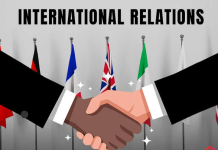In April, Brazil’s inflation, which measures how prices of goods and services change over time, continued to decrease, but not by as much as expected. The country’s statistics agency, IBGE, reported that inflation was at 3.69% over the past 12 months, down from 3.93% in the previous month. However, this was slightly higher than the 3.66% predicted by economists.
Earlier in the week, Brazil’s central bank decided to lower interest rates by 25 basis points to 10.5%. This marked a slowdown in the rate at which interest rates were being reduced, following six consecutive cuts of 50 basis points each. The decision caused concern among investors because some members of the central bank’s board had voted for a larger rate cut. This raised worries that political pressure could influence the bank’s monetary policy.
Even though annual inflation is still within the central bank’s target range of 3%, plus or minus 1.5 percentage points, recent global uncertainties have made the bank more cautious. Factors such as changes in interest rate futures and the value of the U.S. dollar have contributed to this caution.
An economist from Pantheon Macroeconomics, Andres Abadia, explained that while headline inflation, which includes all goods and services, is decreasing and the short-term outlook seems stable, the strengthening of the U.S. dollar since February may lead to higher inflation in the future. Abadia predicted that inflation could reach around 3.5% by the end of the year.
According to IBGE, consumer prices in April went up by 0.38% compared to March. This was faster than the 0.16% increase seen in the previous month and slightly higher than economists’ expectations of a 0.35% rise.
Among the different categories of goods and services, seven out of nine saw price increases in April. Notably, there were rises in healthcare costs, as well as food and beverage prices. However, there was a decrease in services inflation, which was viewed positively by economists.
Rafaela Vitoria, chief economist at Inter, mentioned that despite the slightly higher inflation rate than expected, there are no clear signs of inflation picking up significantly. She believes that the central bank will continue its cycle of reducing interest rates, with further cuts of 25 basis points expected. This could bring the benchmark interest rate down to 9.25% by the end of 2024.























